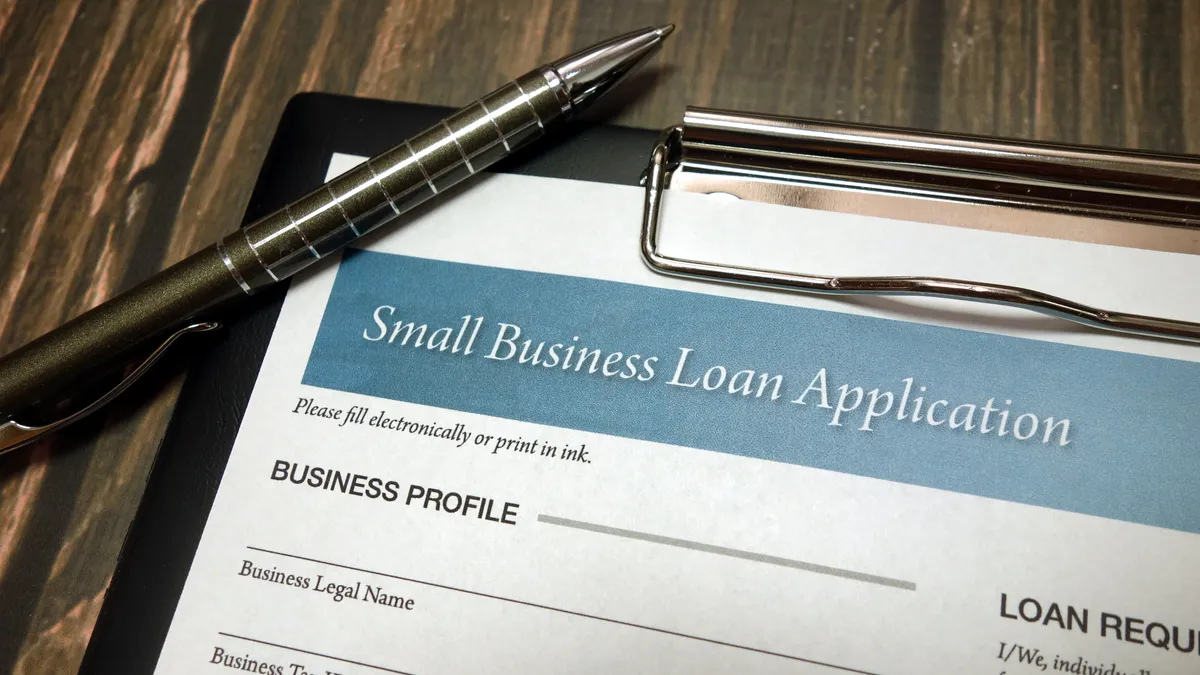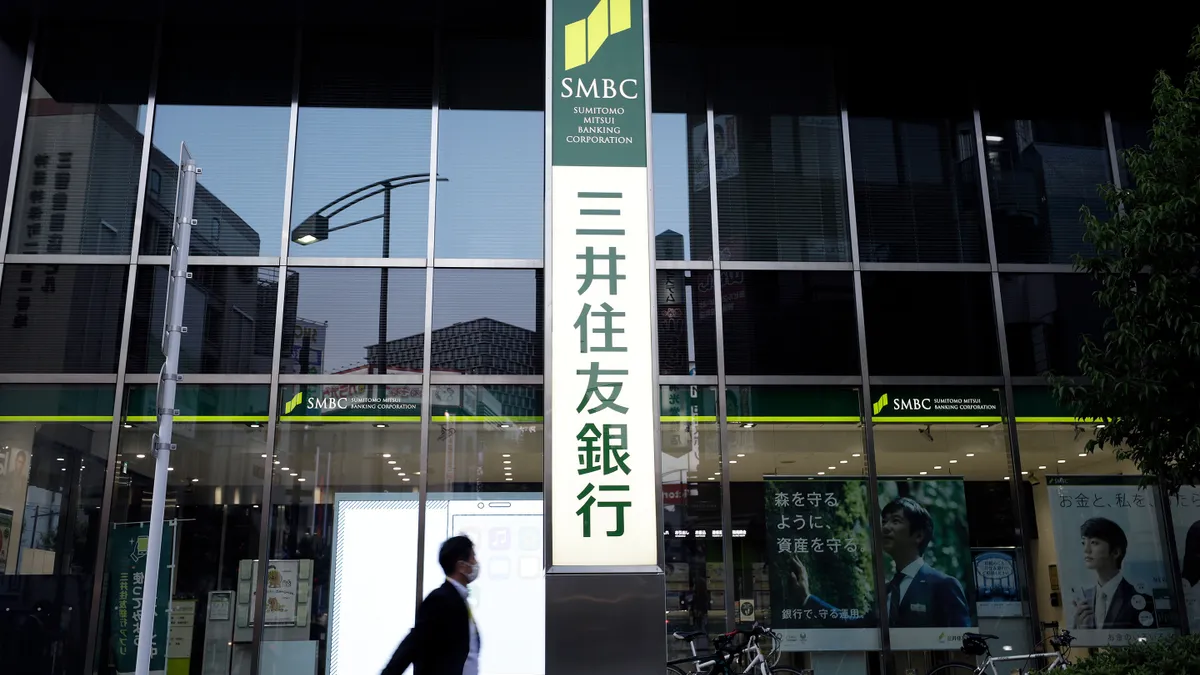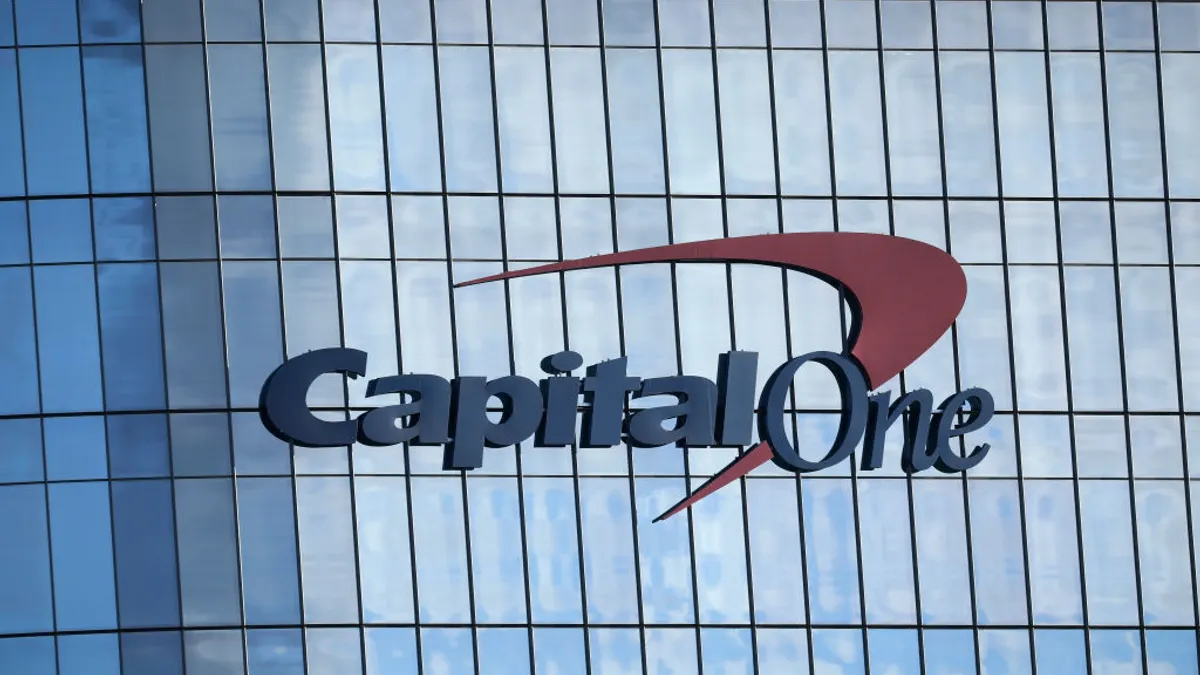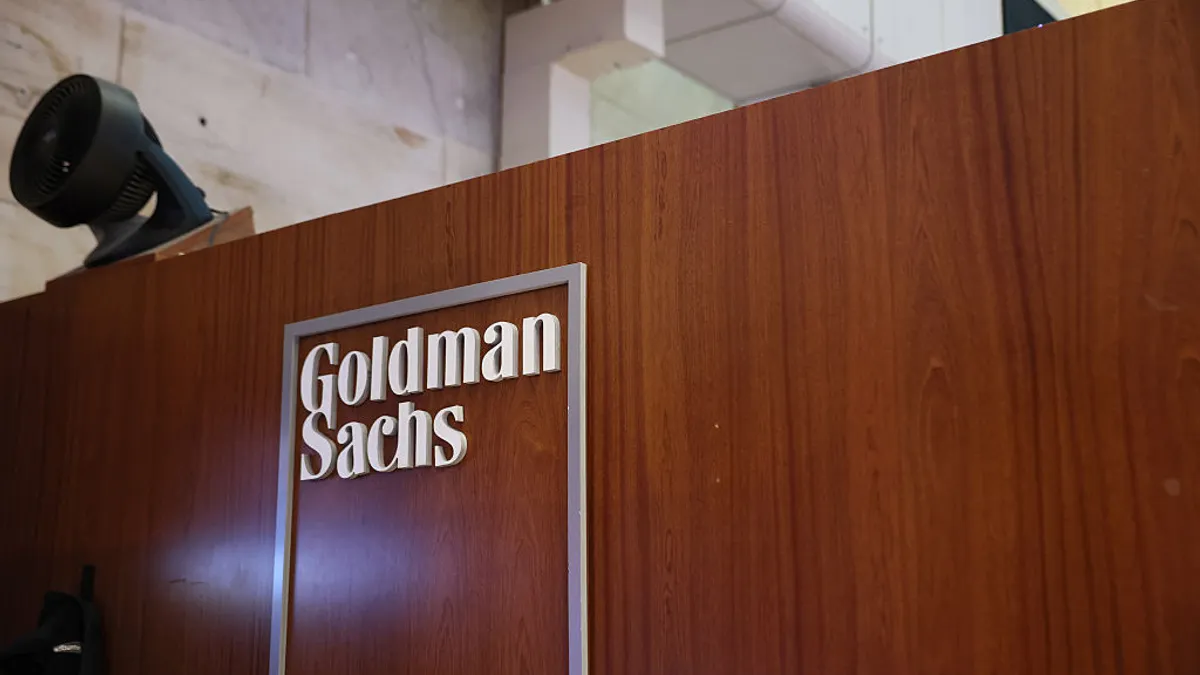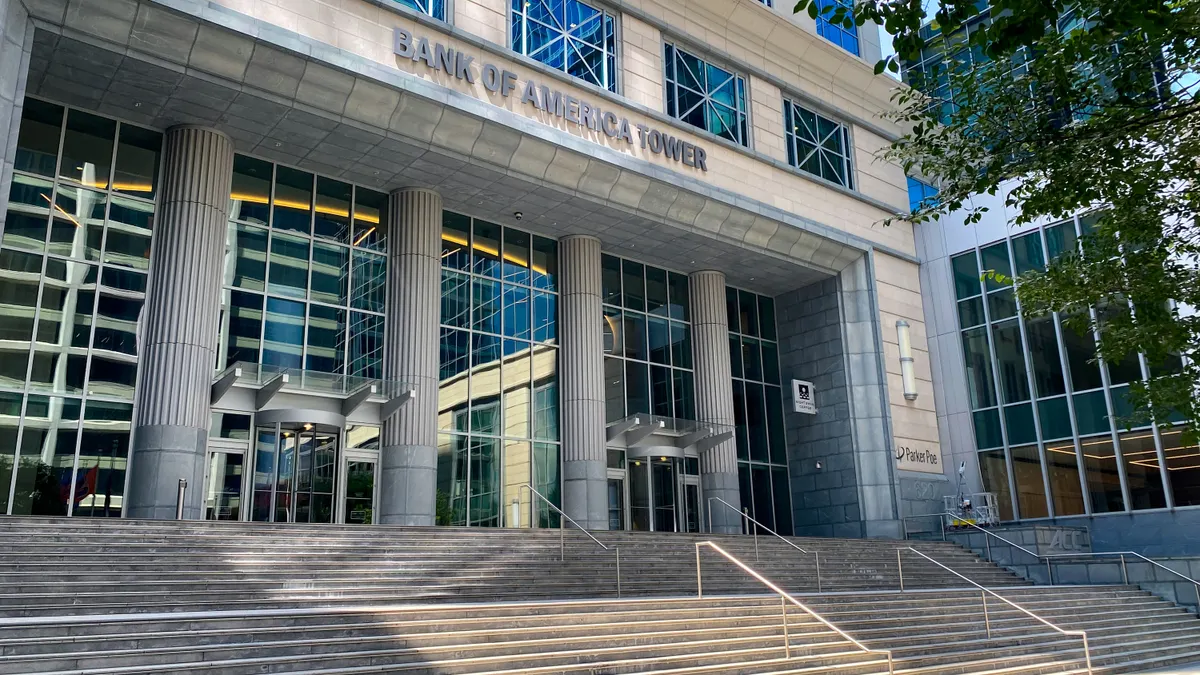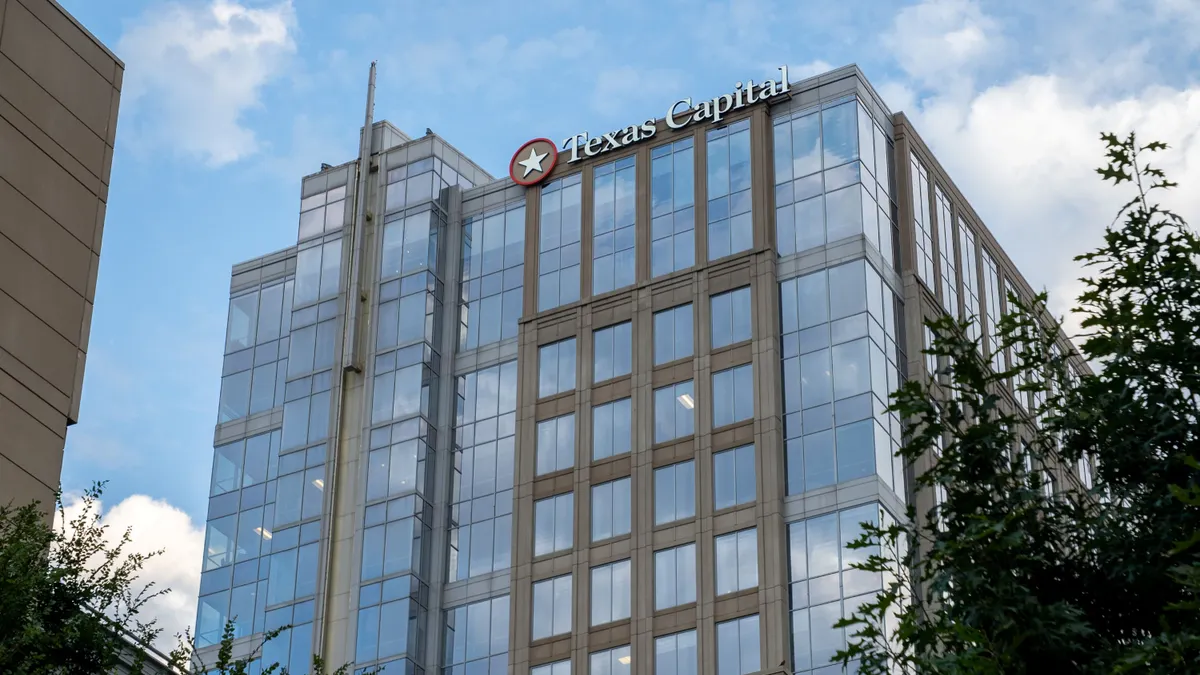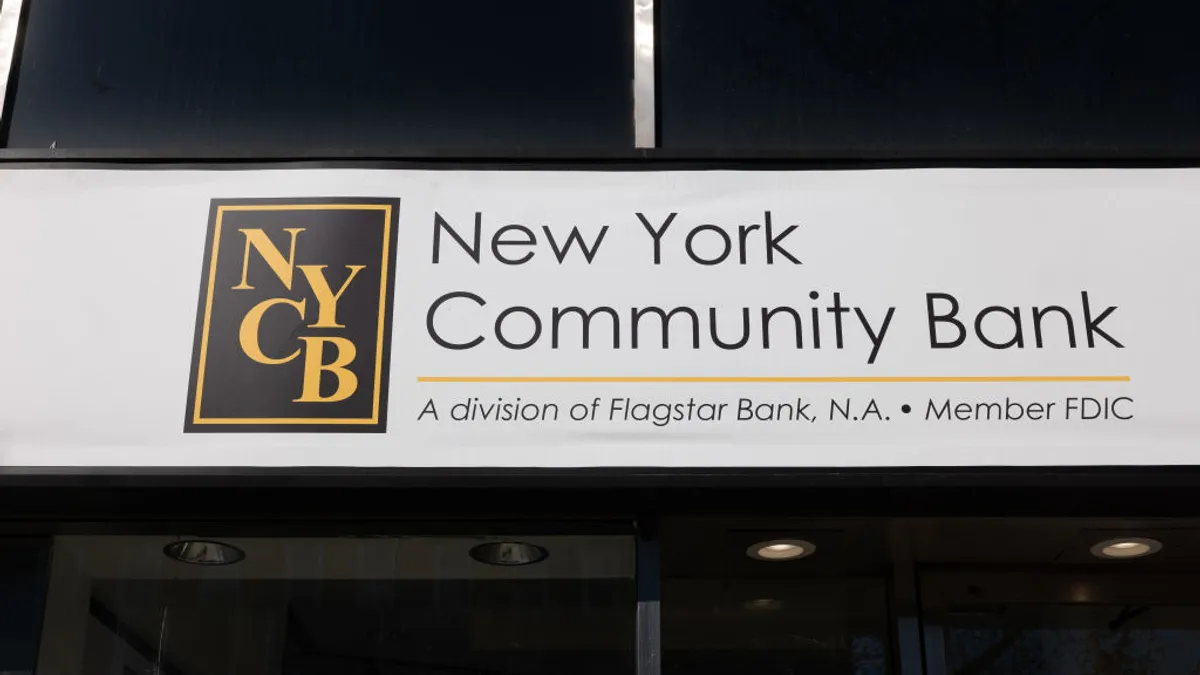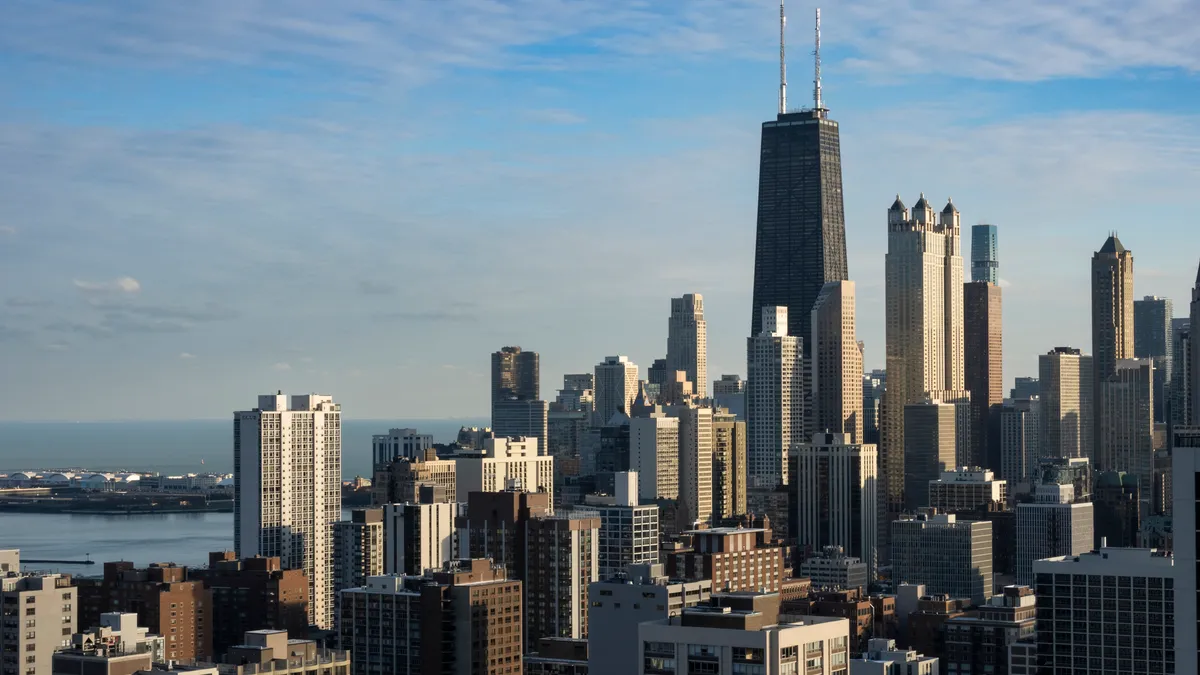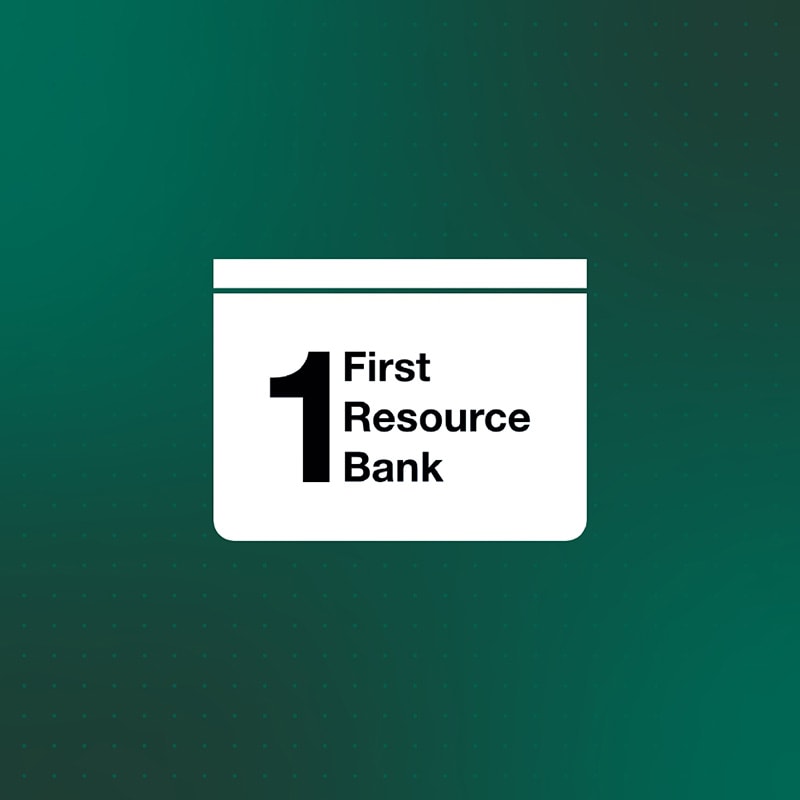If a new proposal put forth by the Small Business Administration (SBA) last month gets the green light, fintechs will have the opportunity to offer loans through a government-backed lending program that has been closed to new nonbank firms for the past 40 years.
The SBA’s flagship 7(a) program provides small businesses with loans of up to $5 million. Under the program, the small-business agency guarantees up to 85% on loans up to $150,000, and 75% for loans more than $150,000. The SBA approved 51,856 7(a) loans totaling $36.5 billion last year, the agency said.
While the number of nonbank lenders participating in the program has been capped at 14 since 1982, a new SBA proposal aimed at growing the program’s lender base would allow other fintechs and nonbank lenders to apply for a Small Business Lending Company (SBLC) license.
Vice President Kamala Harris announced the move in a speech last month, saying the policy change would increase small-business lending, particularly through smaller-dollar loans and in underserved markets.
“We've been saying for years that we are filling a critical gap in the market that traditional institutions have, for a long time, stopped serving because they've moved on to other profitable segments or other things that big banks can make more money on,” said Ryan Metcalf, head of U.S. regulatory affairs at Funding Circle.
Funding Circle was one of a number of fintech lenders that participated in the government-backed Paycheck Protection Program (PPP), an opportunity that Metcalf and many other fintech advocates say highlighted the sector’s ability to quickly provide loans to underserved borrowers during the height of the COVID-19 pandemic.
The SBA’s proposal to open up the 7(a) program to additional nondepository lenders could give the fintech sector another opportunity to showcase its ability to serve small businesses, Metcalf said. But the SBA will need to make several adjustments to the program to truly make it attractive to fintechs, he added.
“It is a dinosaur of a program in terms of the manual operational costs it takes to do these loans,” Metcalf said, noting that a separate proposed rule, put forth by the agency in October, addresses some of these issues.
“They made a host of proposals to really streamline and lower the costs for making small-dollar loans, and they align the procedures more closely to what we do in our regular business,” Metcalf said of the SBA. “When we go to look at whether we can do this program, I think those are the strong considerations for us.”
But other factors could discourage fintechs from participating in the 7(a) loan program, such as a sensitivity to usage of cash, Metcalf said.
“With the SBA program, you have to retain a certain percentage of every loan on your balance sheet, and I think that will be a tough pill for a lot of people to swallow, because we're in a recession. Everything's tight and we've seen a ton of layoffs in fintech,” he said.
Metcalf said the SBA’s proposal to open the program to fintechs presents a partnership opportunity for banks and fintechs that could create a win-win situation for nonbanks and small and medium-sized financial institutions.
“I think small and medium-sized community banks will actually end up supporting this rule because it's really hard for them to make SBA loans at scale profitably,” he said.
Lending-as-a-service
With an SBLC license, fintechs like Funding Circle could essentially enter into lending-as-a-service partnerships with banks, he said.
Banks could refer 7(a) borrowers to fintechs, which would then sell the loan back to the financial institution, allowing the bank to retain the relationship with the customer. It’s a service that Funding Circle already provides on the private market, Metcalf said.
“It’s just another product that banks can partner with fintechs to offer,” he said.
Not everyone is convinced that allowing fintechs to offer 7(a) loans is a good step for the program.
“I think it’s a bad idea that could negatively impact the integrity of SBA’s loan programs,” said Chris Hurn, founder and CEO of nondepository lender Fountainhead, which purchased one of the 14 SBLC licenses from American Business Lending in February 2019. “The SBA has a difficult enough time right now overseeing the current SBLCs — slow response times, drawn-out approval processes, clarity and guidance issues — so adding more SBLCs without more resources is a recipe for disaster.”
The SBA, for its part, appears to be taking a measured approach. The agency said it has the resources to approve and supervise just three new SBLCs.
But Hurn said he’s concerned that the new rule would result in entrants’ approvals being fast-tracked.
Fountainhead’s effort to garner approval from the SBA to purchase an SBLC license was an arduous process that took nearly two years, Hurn said.
“It won’t be fair nor prudent to the existing SBLCs if these thresholds are now reduced for new entrants, plus it will likely jeopardize SBA lending for all participants when you let the foxes in the hen house,” he said. “This is the kind of thing that needs to go forward very slowly, if at all. There are clearly better ways to accomplish the goal of reaching the smallest small businesses — and SBA and Congress has a responsibility to the U.S. taxpayer to get this right.”
Hurn also isn’t convinced some fintechs’ involvement in PPP means they’ll be able to transition into offering 7(a) loans.
“They’re technologists first, wannabe bankers last. I don’t see how this will end well. Just because some participated in PPP doesn’t remotely mean PPP is similar to making regular SBA 7(a) loans. It’s vastly different,” Hurn said.
Fintechs often touted their agility and speed when processing loans under the PPP, but that differentiation won’t necessarily be possible under the 7(a) program, Hurn said.
“Unless SBA unwisely and unfairly allows fintechs to skip what is often a 12-plus month period to prove yourself as a lender deserving of Preferred Lending Partner designation, then new fintech SBLCs will have to submit their loans for general processing, which typically takes several weeks for final approvals to arrive,” he said. “That pretty much blows up their, ‘We can do it faster,’ argument, at least in the short term.”
The SBA is accepting comments on its proposed rule until Jan. 6


